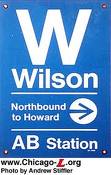chicagotribune.com
Emanuel Says Private Money Could Help Pay for Public Works
Mayor unveils plan to have investors fund projects on 'roads, rails and runways,' but details sketchy
By Kristen Mack and Jon Hilkevitch, Chicago Tribune reporters
Chicago Tribune, March 2, 2012
Mayor Rahm Emanuel on Thursday pitched an innovative private-public partnership to rebuild Chicago and create jobs, but left more questions than answers about how it would be paid for and who would profit.
The idea is to tackle big-ticket projects the administration said could include "roads, rails and runways," using mostly private money to get them done.
But as one government finance expert noted, the investment firms are going to expect to be paid back. And the Emanuel administration acknowledged that his plan could require the public to pay for new services such as bus rapid transit service, CTA line extensions and expanded high-speed Internet access.
In the audience Thursday were executives from investment companies that specialize in taking over public assets in return for providing cash windfalls to struggling governments, ranging from parking decks to airports to the controversial 99-year lease of the Chicago Skyway.
Emanuel and the firms provided few details about how the Chicago Infrastructure Trust would work, although both city officials and investment company representatives said it would be a far cry from the auctioning off of city assets such as the parking meter deal that dogged former Mayor Richard Daley.
"This is creating a mechanism to leverage new forms of funding. This is absolutely not about privatization or selling city assets," said Emanuel spokesman Tom Alexander. "This is about doing wonderful things for the residents of Chicago and the mayor's unwavering commitment for the city to shape its own future."
Traditionally, the city has paid for public works projects one of two ways: going out to Wall Street to borrow money and receiving bids, or leasing a city asset for upfront cash but in return giving up the revenue for decades to a private operator.
It would appear Emanuel wants to try a third way. The mayor identified five major investment firms that would work with the trust to raise money for public works projects: Citibank N.A.; Citi Infrastructure Investors; Macquarie Infrastructure and Real Assets Inc.; J.P. Morgan Asset Management Infrastructure Investment Group and Ullico.
Macquarie is part of the Cintra-Macquarie Consortium, a Euro-Australian joint venture that paid the city $1.82 billion in 2004 to lease and operate the skyway and raise tolls to $5 by 2017. Labor involvement is part of Emanuel's plan. Ullico is a union-funded financial firm that invests in urban development. Jorge Ramirez, Chicago Federation of Labor president, touted the plan as a jobs program. Emanuel made his fortune as a Chicago investment banker between stints in the Clinton and Obama administrations, and his mayoral campaign was heavily bankrolled by contributions from private equity firms, investment management executives and others in the financial sector. More than $5 million of his nearly $14.5 million campaign fund came from contributors with ties to that industry, which stands to make money from financing of debt and other investments in city development.
Emanuel wants to establish a nonprofit to oversee the trust, but the City Council must approve the concept first.
How the trust is formed will be key, because a nonprofit structure could provide a shield, said H. Woods Bowman, a government finance expert at DePaul University.
"As a nonprofit organization, the Freedom of Information Act doesn't apply, the Purchasing Act doesn't apply, the purchasing ordinance wouldn't apply, unless I guess the City Council wanted to pass a separate ordinance," Bowman said. "And the Open Meetings Act doesn't apply."
Emanuel sold the concept as a way to make Chicago less reliant to the "challenges and disfunctionality" of state and federal government.
"Our needs are bigger than what Washington and Springfield can provide anymore," Emanuel said at a West Side carpenters union training facility.
The first project on tap is roughly $200 million in energy efficiency repairs to city buildings and schools. Emanuel estimates the city can reduce its energy bill by more than $20 million a year. It would use that money to pay back the private loans, he said.
Beyond that example, city officials were tight-lipped about disclosing projects that would be candidates for the infrastructure trust. Emanuel broadly mentioned rail, road and runways. The trust will focus on projects that can bring savings or have a built-in revenue stream, said Lois Scott, Emanuel's chief financial officer.
Projects such as increased broadband, the proposed CTA Red Line extension from the 95th Street terminal on the Dan Ryan Expressway to 130th Street and the proposed CTA Circle Line connecting CTA and Metra rail stations in an expanded central area of the city could be the types of projects considered, city officials said.
A top infrastructure expert at Northwestern University called Emanuel's plan "a great idea, with risk.''
The key is for the city to identify stable revenue sources — ranging from user fees paid by patrons of the new facilities, a public subsidy financed by tax dollars or a combination of creative funding streams — so that the private investors who provide the money upfront can get a decent return down the line, said Joseph Schofer, associate dean of the McCormick School of Engineering and Applied Science at Northwestern.
After sitting on the sidelines during the recession, private investors are eager to invest for a longer term payback, Schofer said.
"It's like having a rich uncle who can spend the money now — I need a new car; 'Uncle, can you buy it for me and I will pay it back over time?' '' Schofer said. "But instead of a car, it could be a ring rail transit system. The investors are going to put down the dollars to make this happen because unlike the public sector, which doesn't have the money to spend, these folks have the time to wait for the return, even if it is 5 to 7 percent over 30 years."
The mayor's plan is similar to the stalled national infrastructure bank President Barack Obama has proposed to help rebuild roads, bridges and mass transit. Emanuel said he remembers first being exposed to the idea during his years as a top adviser to former President Bill Clinton, who was on hand for Thursday's announcement.
"There's no limit to what you can do because of this device," Clinton said of the city's plan to set up its own financing. "This is a big deal."
Tribune reporters Hal Dardick, John Byrne, Bob Secter and David Kidwell contributed.
kmack@tribune.com
jhilkevitch@tribune.com
Citizens Taking Action www.CTAriders.org
for transit depdendent riders
No PPPs public-private partnerships
"As a nonprofit organization, the Freedom of Information Act doesn't apply, the Purchasing Act doesn't apply, the purchasing ordinance wouldn't apply, unless I guess the City Council wanted to pass a separate ordinance," Bowman said. "And the Open Meetings Act doesn't apply."


